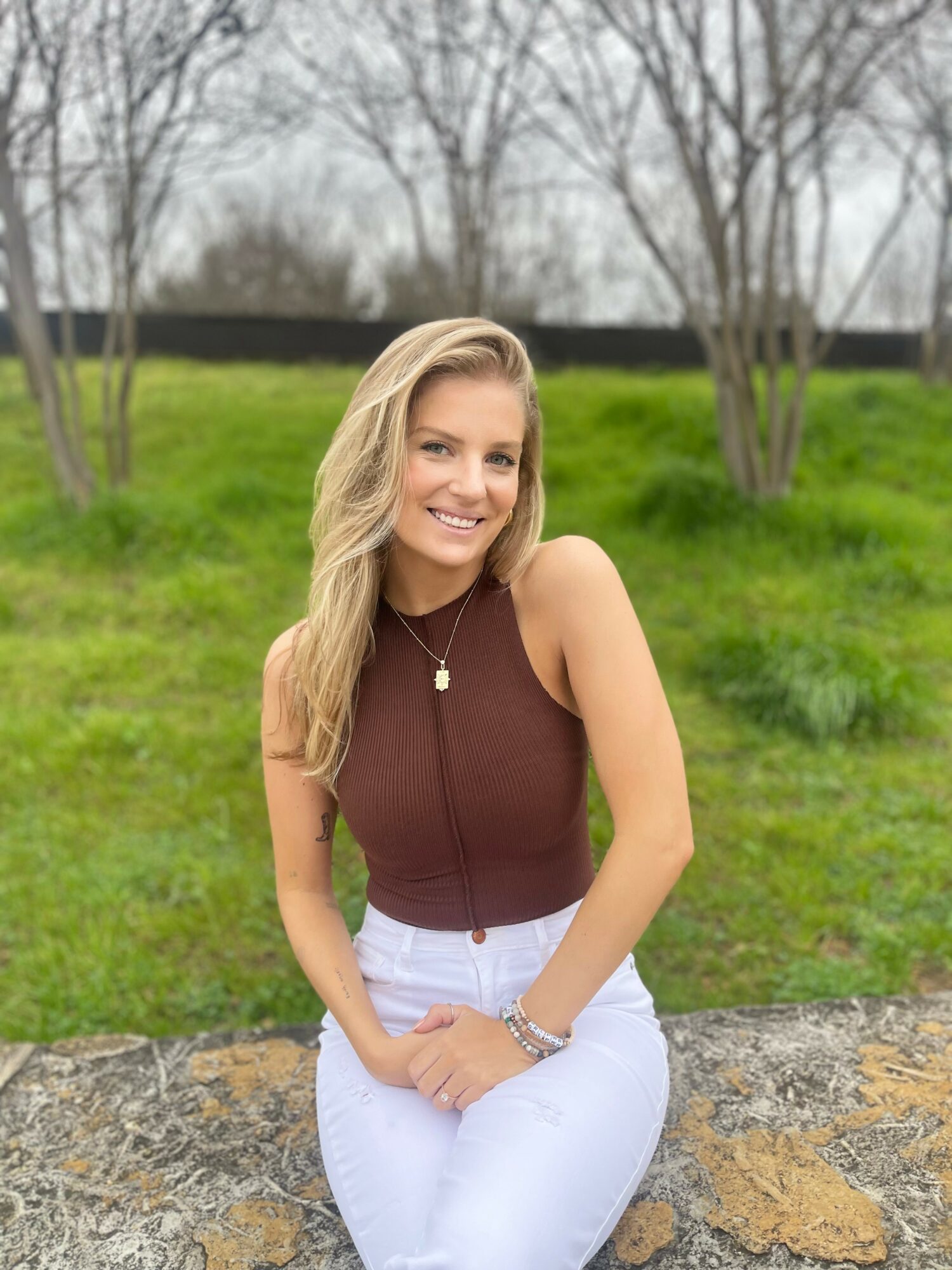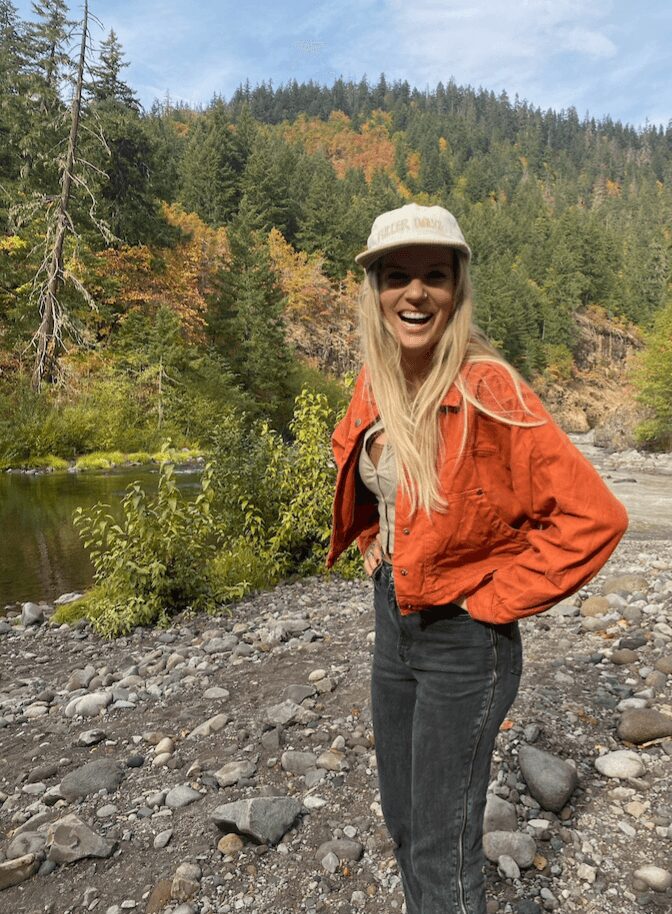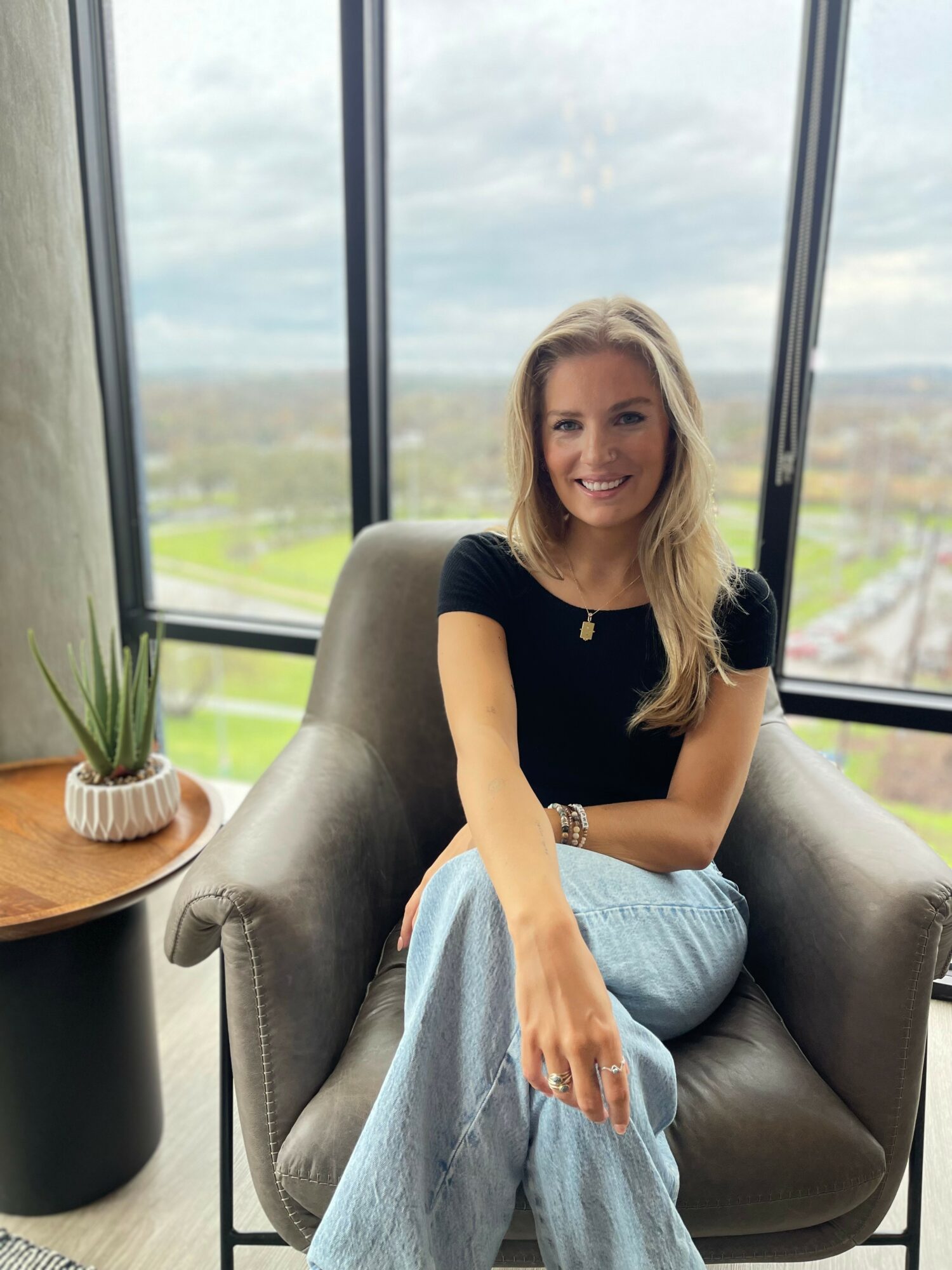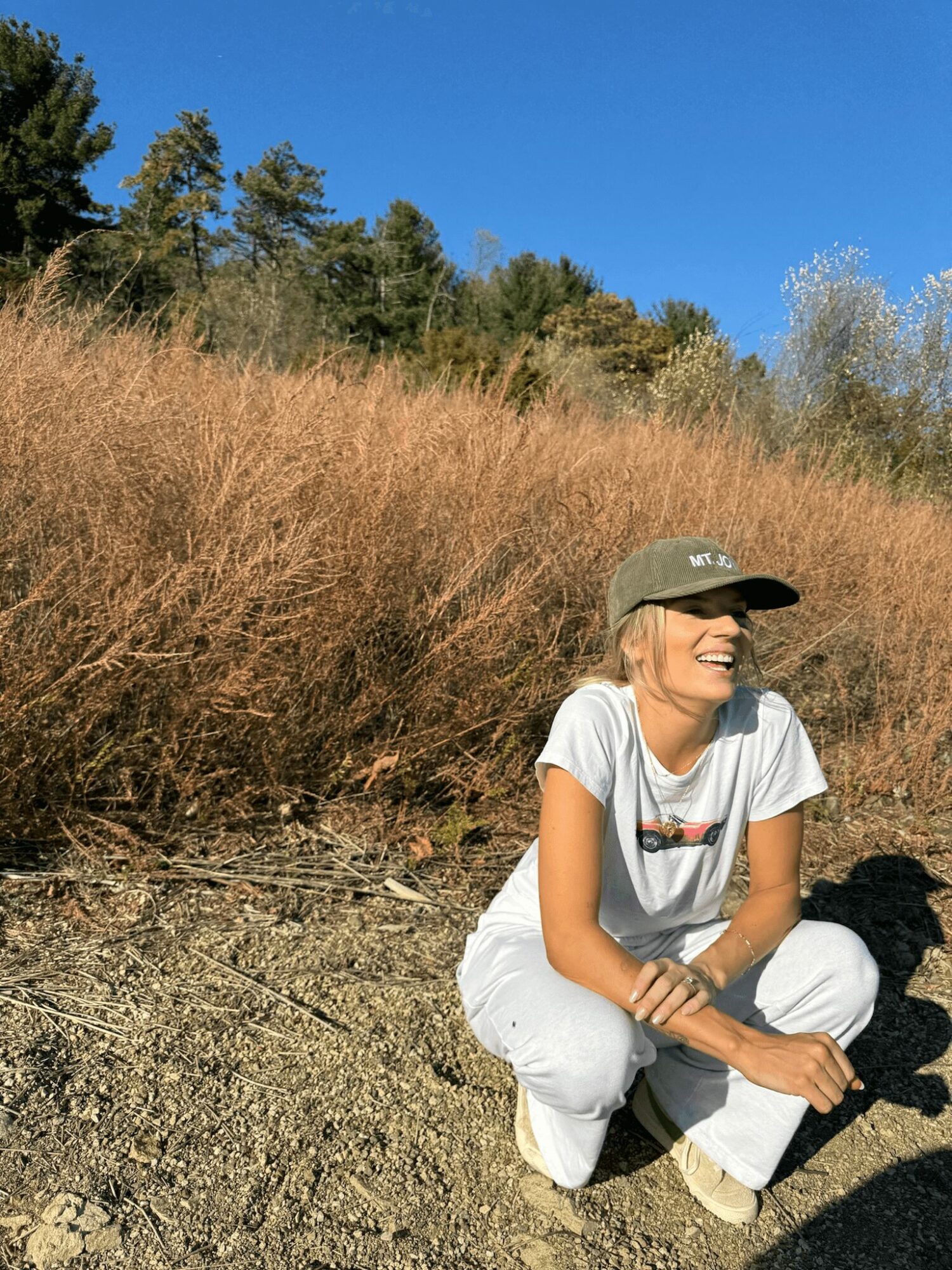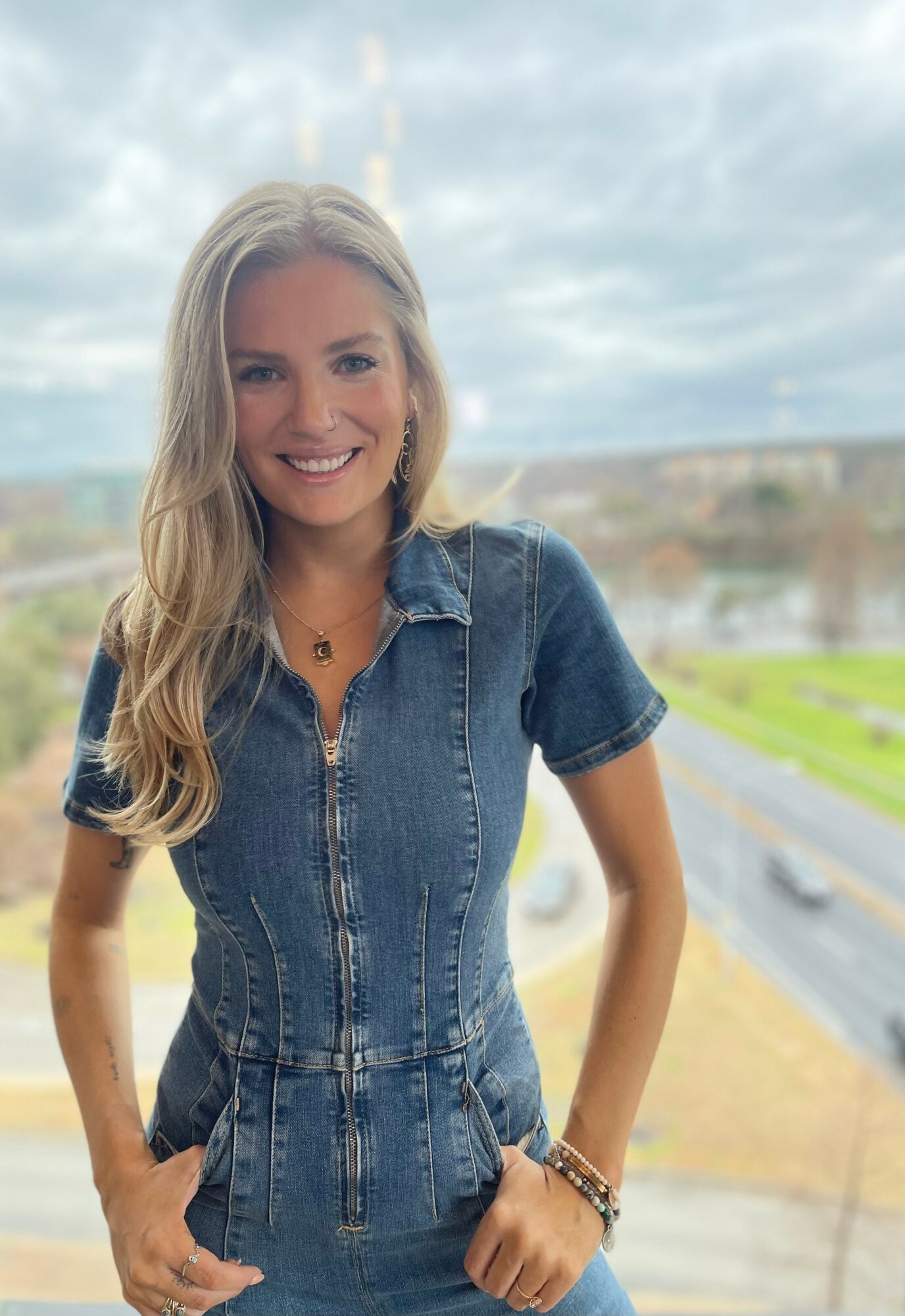

We recently had the chance to connect with Bailey (Van Cleave) Evans M.A., LPC and have shared our conversation below.
Hi Bailey, thank you for taking the time to reflect back on your journey with us. I think our readers are in for a real treat. There is so much we can all learn from each other and so thank you again for opening up with us. Let’s get into it: Have any recent moments made you laugh or feel proud?
Absolutely! A recent moment that made me feel really proud was finally getting my full license as a therapist. After a little over three years post–grad school and 3,000 hours of work under supervision, I’m officially fully licensed and independent. It’s such a huge milestone that came with a mix of exhaustion, relief, and pride. I do think I laughed out loud when I got the confirmation email because it felt so surreal – like, wait, I actually did it?! It’s been such a long road of hard work, growth, and self-reflection, so hitting this point feels incredibly rewarding.
Can you briefly introduce yourself and share what makes you or your brand unique?
My name is Bailey (Van Cleave) Evans and I’m a licensed therapist based in Austin, Texas. I mostly work with teens and young adults, helping them navigate anxiety, perfectionism and people-pleasing, identity, and the messy, beautiful process of becoming who they are. My approach is deeply relational, creative, and grounded in authenticity. I like to blend evidence-based work with humor, self-compassion, and a lot of real talk.
I try to make therapy with me very human. I want clients to feel like they can breathe, laugh, cry, and be entirely themselves in the room with me – no pressure to have it all figured out. I believe healing happens when people feel genuinely seen and accepted exactly as they are.
Outside of sessions, I love creating mental health content that feels relatable and down-to-earth, especially for people who might feel intimidated by therapy or unsure where to start. My goal is to make conversations about mental health more accessible and less “clinical,” so people can recognize that growth doesn’t have to be (and won’t be) perfect. Outside the therapy room, you can usually find me exploring new places, soaking up time with loved ones, or around any live music I can find.
Thanks for sharing that. Would love to go back in time and hear about how your past might have impacted who you are today. What did you believe about yourself as a child that you no longer believe?
Phewf – sure! As a child, I believed that being “good” meant keeping everyone around me happy. That my worth came from being easy, helpful, and putting others’ needs before my own. I was the classic people-pleaser, always trying to avoid conflict and make sure everyone felt okay, even if that meant ignoring what I needed.
Over time, and especially through my own therapy and personal growth, I’ve learned that being kind does not mean abandoning myself. I’ve started trusting my own voice, honoring my limits, and realizing that advocating for myself isn’t selfish, it’s actually a form of self-respect and self-compassion. I don’t have to earn love or belonging by shrinking or over-giving anymore. Now, I know I can care deeply for others and stand firmly in who I am at the same time. As I often say with clients, “both things can exist”.
What did suffering teach you that success never could?
Suffering taught me how to sit with myself in the uncomfortable, uncertain, and in-between moments. Success often feels clean and shiny, but suffering is where I learned compassion, humility, and presence. It stripped away my perfectionism and the belief that I had to have it all together to be worthy.
Through the harder seasons – grief, burnout, self-doubt – I learned how to slow down, ask for help, and let people in. I discovered that healing isn’t linear and that strength doesn’t always look like pushing through; sometimes it looks like resting, feeling, and starting again. Success can validate you, but suffering truly transforms you. It’s what taught me empathy, not just as a therapist, but as a person, and reminded me that growth and grace are often born in the messiest places.
Alright, so if you are open to it, let’s explore some philosophical questions that touch on your values and worldview. What would your closest friends say really matters to you?
I think my closest friends would say that what really matters to me is authenticity – people being real, honest, and connected in a world that often asks us to perform. They’d probably say I care deeply about meaningful relationships, emotional growth, and helping people feel seen and understood.
They’d also say I value laughter and lightness just as much as depth. That I’m a friend who can hold space for hard conversations but also finds joy in the small, silly moments. I think they’d describe me as someone who wants life to feel genuine and grounded, where people can show up exactly as they are.
Okay, so before we go, let’s tackle one more area. What is the story you hope people tell about you when you’re gone?
I hope people say that I made them feel safe to be themselves… that I listened deeply, loved fully, and left people a little lighter than I found them. I’d want to be remembered as someone who cared with her whole heart, who wasn’t afraid to be real, and who brought both softness and strength into the spaces she was in.
I hope the story people tell about me is one of warmth, laughter, and meaning – that I showed up for my people, stood up for what mattered, and reminded others that it’s not hard to be a decent human being.
Contact Info:
- Website: https://austincitycounseling.com/
- Instagram: baileyvancleave_therapy
